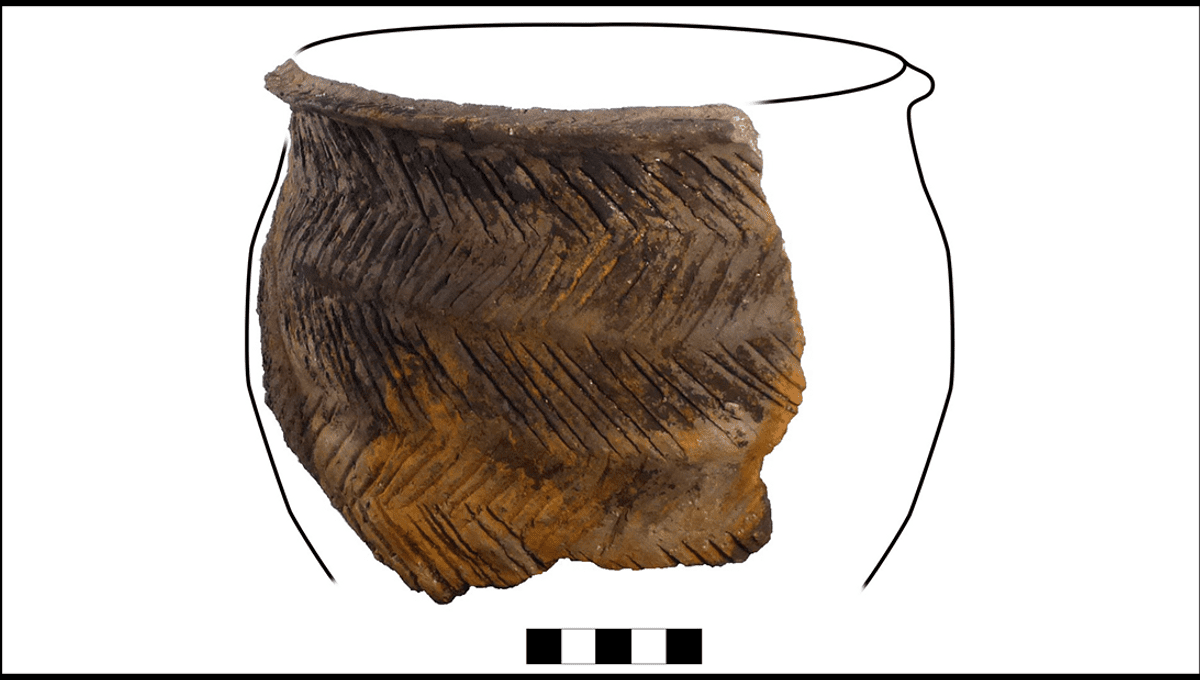
Five and a half thousand years ago, residents of Scotland’s Outer Hebrides were eating a porridge made by mixing milk with cereals, traces on their pots suggest. Although oats subsequently came to be seen as the archetypal Scottish cereal product, at the time it appears wheat played an unexpectedly large role in the local diet.
The first evidence of cereal culture in Britain comes from around 6,000 years ago, but little is known about what was grown or how widespread it was. A new paper in Nature Communications fills in some of the gaps, at least for the far north.
Pottery from the era retains evidence of distinctive dairy residues, so archaeologists have known for a long time that milk or its byproducts were a big part of the Neolithic (New Stone Age) British diet. Evidence of plant consumption has been harder to find not, historians suspect, because they weren’t in the diet but because the traces are harder to detect after all this time.
Professor Simon Hammann of Friedrich-Alexander-Universität and co-authors sought to address this by looking for cereal-specific markers on shards of pottery using gas chromatography and high-resolution mass spectrometry. They report success, the earliest evidence of cereal processing from pots outside Turkey, and even report molecules distinctive to wheat, and an absence of counterparts associated with barley.
The wheat find comes despite there being previously almost no evidence of this being a crop grown in the Scottish Isles at the time. Wheat, after all, was first cultivated in the very different climate of the Fertile Crescent (Middle East). Although 4,000 years of selective breeding had no doubt led to strains capable of handling colder and wetter climates, there are always limits. Moreover, in historical times wheat was a food of the wealthy because it produced lower yields than rye or oats.
The traces are only detectable because the wheat was cooked in the pots whose remains have been analyzed, suggesting they may have been consumed like porridge, rather than as cold milk splashed over wheat biscuits. Other cereals may have been processed in ways that made it less likely their residues would be detectable so much later.
The 59 sherds of pottery used in the study came from crannogs; partially or fully artificial islands built in lakes and estuaries, and eventually reclaimed by the waters. The pottery has been dated to 5,600-5,300 years ago, around the time of the oldest crannogs and a few centuries after the arrival in Britain of Neolithic technologies such as agriculture, pottery, and the domestication of animals. Sixteen of the shards retained distinctive cereal molecules, accompanied in eight cases by dairy fat. Others carried plant molecules of uncertain origin – the authors propose nuts as a possibility.
The sherds were found in the mud of the lakes, and likely fell in there not too long after use. The low oxygen environment contributed to the preservation of the plant residue on their surfaces, although molecules were often found at concentrations of just a few parts per billion.
There is no way of knowing what time of day the porridge was consumed. Perhaps like the inhabitants of Dickensian workhouses, the early Hebrideans subsisted on gruel (watered-down porridge) morning, noon, and night. Alternatively, we can imagine the crannog-builders beat Dr Kellogg to the benefits of a milk and cereal breakfast, presumably without his weird motivation.
Source Link: People In Scotland Have Been Eating Bowls Of Cereal With Milk For 5,500 Years